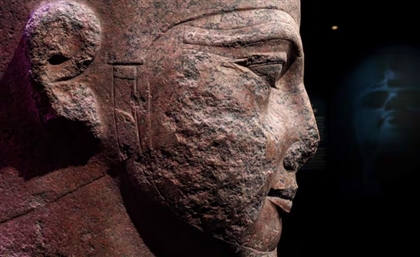Copied
HRW: Stop Jailing Atheists
International human rights watchdogs have called on Egypt to leave atheists be as writer Karam Saber is sentenced to five years in prison.
Jun 05, 2014

Human rights experts have slammed Egypt's strict laws which effectively criminalise Atheism after a prominent writer was sentenced to five years in prison. Earlier this week a court in the town of Beba sentenced land rights activist and author Karam Saber to five years behind bars and fined him 1000 Egyptian pounds (EGP) for contempt of religion over his book, Where Is God?, which tells the stories of poor farmers in Egypt.
The collection first came under fire after Beni Sueif residents filed a legal complaint alleging that Saber’s book promoted atheism and contradicted religious precepts. HRW Middle East and North Africa director Joe Stork hit out at the decision to sentence the writer turned activist. He said: “Rather than prosecuting Karam Saber for giving voice to poor farmers, authorities should bring Egypt’s laws into harmony with its new constitution and international obligations. Freedom of expression is at the heart of a tolerant, democratic society. Although Egyptian authorities claim blasphemy laws maintain social peace, they often have the opposite effect. Prosecuting people for beliefs peacefully expressed validates, rather than combats, intolerance.”
Saber's lawyers have now called on the Egyptian government to issue a directive suspending prosecutions based on anti-Atheism laws, on the grounds that they are incompatible with the country’s new constitution. Egypt's new constitution allows citizens “the right to express his or her opinion verbally, in writing, through imagery, or by any other means of expression and publication.”
However the Egyptian Penal Code sets out the punishment of prison sentences of between six months to five years and fines of EGP500-1000 for those convicted of “exploiting religion in spreading, either by words, in writing, or in any other means, extreme ideas for the purposes of inciting strife, ridiculing or insulting the Abrahamic faiths or a sect following it, or damaging national unity.”
The Egyptian Initiative for Personal Rights documented dozens of judicial prosecutions for blasphemy and showing contempt for religion since 2011. Courts convicted 27 defendants on charges of contempt for religion from early 2011 until late February 2014. Judges acquitted three defendants and rejected charges against 11 others for lack of standing.
- Previous Article The Worst Source For News?
- Next Article Nomades Land
























